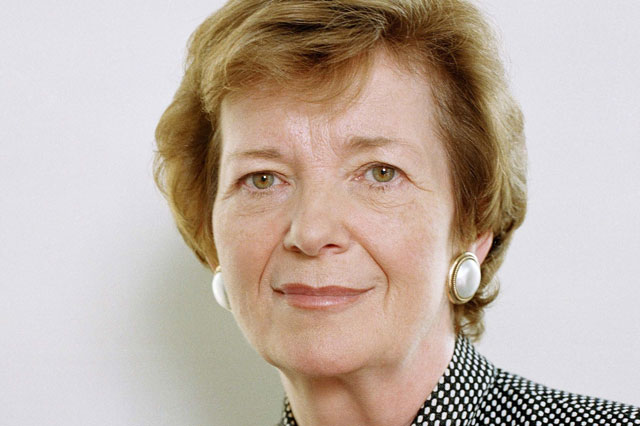This op-Ed was originally published on Forumblog.org.
International Human Rights Day marks the anniversary of the adoption by the United Nations on 10 December 1948 of the Universal Declaration of Human Rights, the first international proclamation of the inherent dignity and equal rights of all people. On this day, we should take stock of the state of human rights around the world, and ask what more can be done by us all to make rights a reality around the world.
The sad fact is the Universal Declaration’s vision of individual freedom, social protection, economic opportunity and duty to community remains an unfulfilled promise for far too many people in every part of the world. For millions of women, domestic violence, unequal protection and discrimination in employment are daily realities. Minorities continue to face stigma and other unacceptable abuses in developed and developing countries alike. In our increasingly interconnected world, the right to information is still denied to countless individuals through government censorship and media intimidation. And more than one billion very poor people – 20% of humanity – are unable, daily, to enjoy fundamental rights to adequate food and access to clean water. These and other persistent inequalities shame us all.
But on this Human Rights Day, it is also true that the Universal Declaration’s message of greater freedom from fear and want continues to resonate. New communications technologies have expanded the space for expression and public debate. By 2020 an estimated 5 billion people will have access to the internet. This not only fosters greater global understanding and collaboration but also allows the majority of the world’s population to have their voices heard and to pressure their leaders to be more accountable.
At their core, these changes are raising our collective expectations, not only of governments but also in terms of what should be expected today of other societal actors, including the business sector.
The Universal Declaration states that “all organs of society” have human rights responsibilities. The good news is that a broad global consensus exists on what these responsibilities mean for business. In 2011, the UN adopted Guiding Principles on Business and Human Rights, the final product of a six-year multistakeholder effort led by the UN Secretary-General’s Special Representative, Professor John Ruggie, of Harvard University, aimed at clarifying state duties and corporate responsibilities in this area.
In Geneva last week, nearly 1,000 people gathered to take stock of the progress made over the past year in putting the Guiding Principles into practice. No doubt, progress has been made, but much work remains to be done. Only a small number of companies have adopted human rights policy commitments, which are included as part of the corporate responsibility to respect human rights set out in the Guiding Principles.
Equally important, difficult challenges such as how companies should integrate human rights concerns into the range of business relationships they engage in daily require greater attention. My colleagues at the Institute for Human Rights and Business and the Global Business Initiative on Human Rights have launched a new report on precisely this subject.
I’m pleased to be chairing the World Economic Forum’s Global Agenda Council on Human Rights, which met recently in Dubai as part of the Forum’s Summit on the Global Agenda 2012. Our Council is committed to advancing business understanding of the UN Guiding Principles on Business and Human Rights and to forging partnerships with other Global Agenda Councils, working on issues that connect human rights to specific business challenges.
As Archbishop Desmond Tutu and I said when marking the UDHR’s 60th anniversary in 2008, we now have the tools to communicate and demand justice. We have global goals and shared destinies that connect us. What is still needed is leadership, resources, a greater sense of urgency, and commitment to the long-term efforts that must be dedicated to ensuring that the rights enshrined in the Universal Declaration are not only recognised universally but respected as well. Business leaders have a huge role to play in making that change happen. I look forward to discussing how we can advance these aims in Davos.





























How should businesses respond to an age of conflict and uncertainty?
As 2024 began, European Commission President Ursula von der Leyen aptly summed up our deeply worrying collective moment. As she put it, speaking at the annual World Economic Forum in Switzerland, we are moving through “an era of conflict and...
26 March 2024 | Commentary
Commentary by Scott Jerbi, Senior Advisor, Policy & Outreach, IHRB